Revisionist Linguistics
March 31, 2018
Michael archangel vanquishing the devil. 1603-06. Au Hans Reichle
The Abraham Lincoln statue, 1879, by Thomas Ball. Park Square, Boston
This opinion piece has been written to accompany the excerpt from the lecture given by Avaaz/Purpose co-founder Jeremy Heimans on July 5 for the OuiShare Fest Paris 2017.
OuiShare: “Unlocking the potential of creative humans to reinvent how we work and nurture systemic change OuiShare is a global community, a collective of freelancers and, at heart, an incubator of people driven by a set of core values. Founded in January 2012 in Paris, OuiShare rapidly evolved from a dozen enthusiasts to a global community spread across Europe, Latin America and the Middle East, and is an international leader in the field of collaborative economy, future of cities, future of work.”
From the OuiShare website: Jeremy Heimans: “PURPOSE, CO-FOUNDER & CEO, USA, Jeremy Heimans is a prolific political and social activist. He is CEO & co-founder of Purpose, a social business building global movements trying to change the world, and is also a co-founder of Avaaz.org, one of the largest and most powerful online activist networks in the world. He believes in the power of collective action to tackle the world’s biggest problems.” [Source]
Background
The concept of “new power” has been named by CNN as one of ten ideas that can change the world. “Originally laid out as the Big Idea in Harvard Business Review and subsequent TED talk, new power offers a frame to understand the distributed and participatory models that are rising in business, life and society.” [OuiShareTV]
According to Heimans, “power traditionally functions as a currency, something valuable to which society wants to cling. The new power, on the other hand, works like a current: it is fluid. While the old forms of power are based on pyramidal forms and a power that goes from “top down”, the new power works in reverse, “as an “upload”. The new models of power are founded and inhabited by the coordination and agency of the masses, without participation these forms of power remain empty. These new models are collaborative platforms that need the active collaboration of their participants to survive.” [Source]
Strengthening Current Power Structures With the Language of New Power
What the “new power” model actually represents is capitalism in its most efficient form. Citizens, en masse, are utilized, organized and mobilized to provide social media online content – which is then captured and exploited for increased corporate revenues – with no monetary compensation for their labour. Although such movements may appear to be “founded and inhabited by the coordination and agency of the masses” (Heimans) – they have been largely created, or co-opted, at or since inception. The “new power” “uploads” to an existing structure. The structure responds by “downloading” an illusion of capitulation in order to satisfy/empower the masses. Yet, by design, its true triumph is the achievement of the following: 1) creating/accelerating economic growth (i.e. market mechanisms), 2) consolidating added power into the hands of the West, 3) the further insulating of the elite classes from all/any risk, 4) protecting and expanding the capitalist economic system, and 5) resolving issues only within the confines of the globe’s current power structures.
Never in history have such powerful conglomerates managed to foment and then seize the required labour to create billion dollar platforms and profits – for free, as they do today. Such fervor for the citizenry to bestow their labour to the elites classes is textbook “Brave New World.” Karl Marx’s theory of surplus labour is classically interpreted as the “extra labour produced by a worker for his employer, to be put towards capital accumulation.” It could be said (even in jest) that one good example of surplus labor in modern times is “the extra labour (physical) produced by the “prosumer”, the willing participants for the elite classes (via social media), to be put towards cultural appropriation and modification (in the form of social capital) with no ownership over the means of production (digital platforms).
Consider that while Western society criticizes the Bolivian government for legalizing child labour laws in order to protect working Bolivian children, it remains completely ignorant of the fact that the elite global corporatocracy is exploiting labour from their own Western children for free – via social media – in what we can call postmodern Western domination. A Brave New World model of “soft exploitation” – with no protection from adults whatsoever. [2] Hence while child labour is a respected part of Bolivia’s social conscience – the gross exploitation and manipulation of their own children and youth (that enriches corporations as opposed to enriching families) does not even register in our collective consciousness at all.
This direct line to youth via the cell phone surpasses all levels of social engineering on a scale never before imagined much less thought to be achievable. The art of storytelling, exploitation and manipulation, at once consolidated to create a youth populace in the image of superficiality and consumption. The Children of the West have been thrown to the wolves. A gift to our corporate gods.
As one of ten ideas that can change the world, embraced and highlighted by some of the world’s most powerful and elite institutions, the false perception of grass roots mobilization seizing power (designed and financed by the oligarchs) is a strategic marketing maneuver designed to create a short-term euphoria that feels like victory. The perceived victory –achieved via “the deployment of mass participation and peer coordination” (Heimans) – is always made malleable to further protect – the identical powers. Hence, it is not “new power”, it is “old power” simply rebranded with more vapid methods of exploitation targeting and manipulating the target demographic, which is “millennials”.
According to Heimans what societies are experiencing and undergoing today is “a big war over values”. What is unspoken is whose values Heiman’s New York PR firm pledges allegiance to and is paid to expand: Western values.”
Angels & Demons
“If names be not correct, language is not in accordance with the truth of things. If language is not in accordance with the truth of things, affairs cannot be carried on to success.” — “Tribe” and “Tribalism”, 1981, David Wiley, African Studies Center, Michigan
In the realm of behavioural change and the new era of “storytelling”, language is always key and framing is paramount. Heimans repeatedly frames citizens as “consumers” while viewing himself and the corporate oligarchs he serves as those “on the side of the angels. In this particular segment of the lecture, focused exclusively on Syria, Heimans introduces far-right “Trump” values as “nativist” and “tribalist” that will “essentially return” society ” to a kind of nativist tribalist world”:
“… so I want to show you this from our own work in Syria so I use this as an example of a pick a positive counterpoint right so if we think of ourselves at the moment as you know kind of big war over values in the world right on the one hand you’ve got the trumps and the brexits who want to essentially return to a kind of nativist tribalist world…”
[The original lecture, in its entirety can be found here: https://youtu.be/UWgPFGJBx7I]
The old adage goes “The more things change; the more they stay the same”. One of the things that has stayed the same is the utilization of language to manipulate the masses throughout history. Today’s infusion of propaganda into the Western psyche through mass media is astounding. What is perhaps more stunning, is how words that have been appropriated in the most vulgar manner, that should have been deemed as abhorrent in the past (and thus rejected) are now being utilized and hence popularized by factions of the elite to give further advantage to those in power.
“It is no accident that the contemporary uses of the term tribe were developed during the 19th-century rise of evolutionary and racist theories to designate alien non-white peoples as inferior or less civilized and as having not yet evolved from a simpler, primal state.” — “Tribe” and “Tribalism”, 1981, David Wiley, African Studies Center, Michigan
Revisionist Linguistics & Colonial Narratives
Two terms that have currently been transformed from ones of indigenous degradation are “nativism” and “tribalism”. These words were at one time used in a slanderous aspect directed at those designated as genetic inferiors due to a non-anglo ethnic background. Today they are being used in a similar fashion, but to denigrate a different adversary along ideological lines and not ethnic ones. This transference of motive has dictated the meaning of these words.
In order to correctly digest the change in climate regarding the minute differences in language, we must first look at the particular terminologies in question, how they are defined and to what degree they are used today in comparison to yesterday. According to Wikipedia the word “nativism” is defined as the following:
“Nativism is the political policy of promoting the interests of native inhabitants against those of immigrants. However, this is currently more commonly described as an anti-immigrant position.”
In terms of this definition in a general context, the determining factor of what is considered native is the point of contention. As this terminology has now been procured by many on the alleged leftist side of the aisle, the fact of the matter is that the one thing that has been constant in its usage is the European being the determined native in the argument.
Therefore, that which has been dictated as nativists has remained the same as the focal point (the European), whether it was in comparison to the original inhabitants of the land (the indigenous First Tribe nations) or those that are currently the enemy, the almost exclusive black and brown migrants from the Global South. Therefore, the collective personage of victimization is the European with all other people being seen as invaders in the eyes of the Westerner. This rationalization is due solely to ethnicity and locality of the European in regards to where he or she wants to stay and what environment is most needed for capitalism. Consider that the modifications and usage of the word native, to “nativist” or “nativism”, thoughtfully and crudely reframed to represent “xenophobic nationalism” is “an almost exclusively American concept that is rarely discussed in Western Europe.”
The Historical Context
“Nativism is currently gaining traction across the Western world” — What Is a Nativist?, The Atlantic, April 11, 2017
In order to understand the intricacy with which the term native has been appropriated as well as the current movement of nativism, we must look at the history of appropriation regarding native rights. Rights which have been transferred from the first people to those who conquered them. Historically if you look at indigenous tribes, the migratory patterns came about from the necessity to travel to places which would allow them to survive, have freedom and not be in conflict with those who were in close proximity. The end result of this curiosity and the travel is the definitive indication of man’s residence as no more or less than any instinctual animal that prizes self-preservation as a form of a survival above all else. Yet in terms of that migratory pattern there were only so many places that were amenable to the survival of man. Man eventually had to accept that like any animal, it couldn’t venture far past certain places on the planet or it would perish. This relationship of life to Earth was no different than any animal found in certain regions of the world and not others. The locale will determine whether or not a particular form of life will flourish or perish. As man is like any other creature, its body acclimates to the environment in which it resides – only to the degree it is physiologically possible.
What was different in regard to the travels of the European from a cultural aspect is that it was done entirely for economic reasons. That is the burgeoning stages of the formation of the capitalist system. The beginning invasion of the European into these vast foreign lands was done at the behest of trade if necessary and conquering if possible. But as any foreign invader who possessed ulterior motives yet lacked the strength to impose their will, the relationship began as one of charity of the original people towards the European. Yet, as the Europeans strengthened themselves and moved from a relationship of dependence to equals to eventual dominators of the indigenous, the response from the indigenous went from one of acceptance to anger, to fear, and finally a plea for some form human decency. Surely a reasonable request considering they were the original caretakers of the land and even helped the European in their many hours of need.
If we fast forward to the present day, there is a most insidious element regarding the extermination of the indigenous, the original native, by way of genocide or ethnic cleansing: witness the unspoken method of supplanting the native by the Europeans (conquerors) appropriating the terminology that should be descriptive of the dispossessed. The best means of masking heinous atrocities is to scrub the victim from history and disallow him/her/them to speak for themselves. [2] From a philosophical context, this is why it was necessary for the European to exterminate the original native in order to take her/his rightful inhabitance as keeper and defender of the land.
Once this was established, it was then easy to lay the foundation of transitioning roles, from that of a meek interloper to the role of shifting and shaping the narrative as conqueror. A revision of history that erased the extermination preceding the present day circumstances of European domination. This was and continues to be most easily accomplished by dehumanizing the people who at one time resided here. To strip away the humanity of the aggrieved is in essence to place man (i.e. the white anglo-saxon) as rightfully seizing the land away from the native or animal, which has been designated not only as undeserving inhabitants of the area – but even as detrimental to the land itself. The destruction of the native was no different than the destruction of the buffalo in the mind of the white power structure. The singular caveat being the verbalization of the destruction via the indigenous peoples caused internal consternation for some Europeans at varying degrees. Here we have an offshoot of the economic system colliding with the religious beliefs and social structure of racism. All converge to appoint the Anglo at the top of the hierarchy as the only peoples worthy of protection. To absolve centuries of deplorable crimes committed by the Anglo, their descendants obfuscate the truth by sanitizing and rewriting history.
As time moved on, the eradication of the original peoples made way for the European to write history in their image. The original native was erased and replaced by what has been deemed as the ONLY human: the white man. Over the years, this transition nefariously evolved into one where the unacknowledged basic human rights of the “savage” (i.e. Indigenous) was eclipsed for the overwhelming protection of “the humans” (ie. White man) who procured the land and continue to control it to this day. As a result of this, the overwhelming desire that permeates the consciousness of the Western world is for ” the humans” to protect its potential reclaiming by the “savage.” In a historical comparison, the greatest fear of the slaveholder during chattel slavery was always the rise of the slave. This foreboding mindset has permeated into every aspect of the present day Anglo society, inclusive of regions that are predominantly non-anglo (land reformation in South Africa, Zimbabwe, etc.).
In reality, the Western mentality of nativism is merely a euphemism for the continued and escalating demand for the protection of white people’s rights. It is nativism, which has fed the fervor for a wall “protecting” the U.S. from Mexico (described as any non-anglo who comes from south of the U.S. border). It is nativism that nurtures the belief (and fear) that any infusion of non-anglo people to Euro-dominated states is a sure sign of being overtaken by “the savage” – even when the surrounding environment demonstrates no signs of threat. The appropriation of being the native by way of extermination has led the Anglo to incur an abject (if not unconscious) fear: the fear of retribution (although there is no evidence to support this whatsoever).
The truth of the matter is this – “nativism” effectively erases racism. Discrimination and racist hatred of 21st century migrants and refugees is rebranded as conflict due to religious and cultural differences – not colour nor race. Political correctness replaces vulgar reality. Racists have been rebranded into politically correct “nativists” that are simply supporting the wrong political party due to a shortsightedness. No one in power wants to alienate nor offend racists when one day the same racists may tip the needle in your favour on a separate issue. But even more so, no one wants to be seen as an institution or thought-leader seeking support from or appealing to racists. Thus, the term “nativist” will be popularized in a country where racism is on fire.
Revisionist linguistics is made to re-write history while simultaneously re-wiring our brains and preying upon our fears instilled by imperial, colonial and capitalist forces.
Nativism is racism – made politically correct.
Tribalism
Rebranding ethnicity as tribalism is a deliberate and systematic furthering of cultural denigration – one that by no accident furthers US imperialism and foreign policy. These rebranded pejorative terms have proven to be highly coveted by both media and academia resulting in the terms being more and more an embedded part of the social fabric – propagating the motive and desired effect: the representation (and selling) of Eurocentric and Western ideologies regarding what is and isn’t acceptable. The revamped derogatory terms are utilized by both the faux left and the far right.
“In New York, we term it ethnicity, but in Africa it becomes tribalism.” — “Tribe” and “Tribalism”, 1981, David Wiley, African Studies Center, Michigan
The results are threefold. The language
1) further decays Indigenous identity.
2) reintroduces elements of savagery and negative, subconscious colonial connotations reinforced via societal conditioning.
Such an example is the perceptions cultivated in Western children using social cues and constructs via mainstream media, with Disney’s infamous movie Pocahontas being one of many cases. By the age of five, most children in the Western world equate the words “native” and “tribe” with Indigenous peoples.” Indeed this is a Western construct digested by children who are fed by and privy to its tentacles. 3) provides a tool for the expansion of neoliberalism. “Tribalism” according to Heimans et al implies a “disorganized, primitive, and less civilized peoples.” whereas “modern governments” (Anglo governments) are meant to “promote the fulfillment of individuals”. Thus, African and Middle Eastern countries, targets for the expansion of neoliberalism, are by extension, prime targets for the labeling of “tribalism” (i.e evoking fear in the Euro mind) by those with a vested interest in US foreign policy (while foundation money is the oil that turns the cogs in the machine). This is the beauty of social engineering. The ability to reinforce the behavioural economics of hatred (via fear and racism) – in broad daylight, hiding behind a wall of words.
The Descent into Tribalism, The Guardian, August 23, 2006:
“Modern governments, when they try to justify their existence in historical terms, are apt to propose a rough-and-ready anthropology for human development. First came the tribe – savage in instinct, ritualistic in religion and run on the basis of a grunting solidarity; humanity’s first exercise in collectivism. The nation, which takes its place, is for more refined, literate peoples and can call upon scholars and scribes, chroniclers and preachers, who propose common goals for the nation. Organised states, with their bureaucracies, sanitation services and taxation policies, like to think that they exist on a higher plane than either the tribe or the nation. Ethics loom large and morality’s plans acquire a finer focus. Modern governments are meant to promote the fulfillment of individuals, their happiness and ease of life. Savages have become citizens and can look beyond the narrow ambitions of the tribe.”
Instilling Ethnic Fear via the Utilization of Cultural Language

Image: Tribalism is utilized to conjure up images of the “black savage” in foreign (frightening) lands.
Tribalism in effect has various usages, but all to the same effect. Within the mainstream, it is continuously used in a pejorative context – but viewed as positive or negative depending on the personal beliefs directed at those utilizing the language. Regardless of the person who is using it or whatever the particular ideological thinking, the seemingly benign use of “tribe” (used in reference to small groups, etc.) by extension implies the term “tribal” (used in reference to civil wars, backwardness, barbarism, etc.) and as a result gives the user a free pass for acceptable racist expression. By continuously intermixing the explicit term “tribalism” and the centuries long socially cultivated subliminal idea of “African” (ie. phenotypical non-anglo) savagery – the ultimate result is fear, which is a more intense emotion and ultimately dominates the meaning, even if it is only on a subconscious level. Although not acknowledged, this subconscious racism hums softly beneath the white supremacist power structures.
Although no people or culture is perfect, there are examples of many that are a complete reversal of the global imposition of Western culture and its foundational principles in a market economy with no emotional investment outside of the worst traits of man, such as greed and avarice. For example, African philosophy in a general context before victimization through colonization and imperialism has historically been strongly associated with tribalism and an intimate feeling of attachment with nature: we’re not here to “have dominion”… We are a part of the Earth, we are dependent on it… we have ecological responsibilities …. “Nature” is not just a resource…. We are nature.”
To delve further, this ideology is visible in various Indigenous philosophies – philosophies that represent the antithesis of Western consumer culture and therefore a direct hindrance and threat to globalization, to industrialization and, most importantly, to capitalism. This can be equated with the race to kill off paganism to be replaced by both Christianity and Catholicism. Utilizing language, the word tribalism is revamped and utilized to instill fear and further racism (strengthening white supremacy). The word becomes another instrument to decimate surviving/existing cultures – with the goal of replacing such culture with superficial nothingness – a consumer society. These rebranded terms have been the catalyst for the modern day subconscious belief system, where indigenous self-reliance will always be seen as a threat to neoliberal order. What a “Tribe” represents in Africa could be loosely associated by sought after local ways of living in the western world – such as transition towns, slow town movements and overall movements for relocalization. All these movements are in direct contrast and opposition to globalization and the goals of corporatocracy.
Autonomous communal living based on subsistence agriculture and sharing are the enemy of foreign policy, the IMF, the world bank and essentially everything today’s global elites and corporate superpowers hold dear. In essence, we are being wholly conditioned to automatically perceive/equate non-Western culture as an automatic threat. Further, US and foreign occupations, destabilizations, wars and the rape, pillage and theft of resources (oil, minerals, labour) across the Global South are conveniently blamed on “tribalism’. Hence – tribalism also provides a free pass to imperialism – while cementing the image of the “un-noble” savage. Tribalism & nativism are recolonization via linguistics.
Note: These characteristics are presented in a general context. We must be cautious not to simplify all cultures as monolithic or even perfect, rather a regional designator that runs current throughout the tradition of these philosophies as a whole.
In countries that fall under the imperial gaze of European and Western states, “tribalist” discourse has effectively crushed critical discussion of ethnicity in all states that are under the auspices and domination of European control, be it internal colonization (the native reservation system) or external imperialism (state control in other continents by way of multinational corporations). In Euro-dominated institutions and landscapes, (see the “Academic Imperialism” lecture by Claude Alvares) those that raise questions concerning ethnicity risk being accused of provocateurs inciting “tribalism” (ie: enticing division within a nation that is supposedly united). The ‘criminalisation of ethnicity’ and the erasure of racism in America via linguistics – must be acknowledged as another dangerous yet effective instrument of soft power.
The Purpose of Purpose
In no uncertain terms, academia and media have strategically and deliberately rebranded/reframed the words native (“nativist”) and tribal (tribalist”) with the most negative of connotations. Academia and NGOs, as highly financed apparatus of the oligarchy reverberates the language through the eco chambers of foundations, think tanks, universities and entities within the non-profit industrial complex, all financed and ultimately controlled by the oligarchs.
Going one step further, the word native is currently in process of being replaced/rebranded into “nativist”, which simultaneously and effectively erases all Indigenous such as the American Indians who continue to resist an ongoing genocide by Europeans that persists to this day. “Nativists” could be referred to as revisionist linguistics since in its new form, “native” refers to native-born Protestant Americans – the “nativists” of the land – stolen from native tribes.
Sycophants of the establishment are tasked with the popularizing of such terms when it serves their interests. To further those interests, U.S. media has been abuzz in directing this type of subtle terminology, exemplified by current U.S. President Donald Trump and his administration since it came to power. The slander of “tribalism” directed at an enemy has become synonymous with someone being “woke” in leftist circles that are centered in the U.S. but has now reached global levels.
An example of this in the left wing faction of the establishment is an article in The Atlantic entitled “The Tragedy of President Trump’s Tribalism” (November 2, 2017) This article illustrates the shifting of the U.S. linguistic landscape, where what was once acceptable overt racism has now morphed into covertly coded language of acceptability, including that used by academia. With a fair degree of certainty, you can bet that when the world’s most prestigious marketing agencies polled for key words that stir up negative emotions in American constituents – the words native and tribes were both at the top of the list. If not outwardly said, definitely in the mindset of those in power, be it conspicuously or subconsciously.
Revisionist linguistics is made to re-write history while simultaneously re-wiring our brains and preying upon our fears instilled by imperial, colonial and capitalist forces. This is carried out by those on the right side of spectrum as well as those on the faux left.
“… you’ve got the trumps and the brexits who want to essentially return to a kind of nativist tribalist world and on the other hand you’ve got people who support openness pluralism compassion science etc the challenge for those of us on the side of the angels…” — Jeremy Heimans, Avaaz/Purpose co-founder
As illustrated by the supposed left spectrum, the dogma to be digested from the tenacles of empire is clear. We can “essentially return to a kind of nativist tribalist world” – or we can join Avaaz, Purpose, Heiman’s et al and the oligarchs they serve are those on the “side of angels” (ie. “ethical” NGOs).
In similar lectures, one such corporation on the side of the “angels” in Heimans warped view is Unilever: “… you know we’re in the business of purpose of trying to figure out how to do mass mobilization of people and we can’t mobilize enough people if we don’t get the help of some of the brands who already on the side of the angels on climate change to reach into their consumer bases technology companies [and] media companies… companies like Unilever…”
Neotribes
Above: NEOTRIBES video promoting through advertising for Unilever’s Ben & Jerry’s. [Source]
Yet, Purpose takes revisionist linguistics to an even more unimaginable level. Consider the marketing of “neo-tribes” by (former) Purpose/Avaaz staff and like-minded digital marketing executives for the purpose of branding, influencing and the marketing of consumer products as well as (Western) ideologies. Here the word of negativity is spun into positivity when applied to themselves (ie. the angels): “As neotribers, let us dream big but also stay rooted in pragmatism.” Rest-assured, “an angel” of a “neo-tribe” can and will employ the words tribes and/or tribalist, as well as native, for those that they forever denigrate and seek to further colonize. It is at the sole discretion the Anglo male, the self-determined and acknowledged bringer of “civilization” to the global non-anglo savage through colonisation and imperialism, whether the words are spun as positive or derogatory, based on their own desires as well as the desired framing for further conditioning of the citizenry.
“Organizations can adapt two network strategies. They can either build their own brand tribe, or reach out to existing consumer tribes. While some people will advocate one way over the other, both should be considered whenever possible. Regardless it’s important for companies to understand how people exercise influence within their tribes when reaching out to them. This will make their initiatives more native and successful… To be truly native and successful you should strive to understand and share as much of tribal culture as possible…Don’t forget. Influencers are tribal influencers. — The 7 Cs of Tribal Influence, Tribaling, Tribal Growth Hacking website, August 27, 2013 (Emphasis added)
In 2016 Alexa Clay presented a lecture titled Neo-Tribes: The Future is Tribal. Clay’s position scaling social innovation at Ashoka Ashoka (Soros) is but one past held position in her very extensive bio. With John Elkington [further reading: Building Acquiescence for the Commodification of the Commons Under the Banner of a “New Economy] and Maggie de Pree she co-authored the report The Social Intrapreneur: A Field Guide for Corporate Changemakers, sponsored by the Skoll Foundation. Clay belongs to the class of upper echelon in elite activism. In addition to advising the Clinton Foundation, Clay’s voice has been highlighted by the International Monetary Fund. Clay serves on the (all-white) advisory board of Purpose Economy (the Purpose Network, Purpose Companies, Purpose Foundation). Incidentally, the lecture this opinion piece is based on was created for OuiShare and NeoTribes are partnered with Coliga – a part of Tipping Canoe, “an accelerator for consumer driven communities.”
The task of Purpose, Avaaz, 350 and a multitude of NGOs expanding into countries across the middle east and Africa is simple: convert Middle Eastern values (evoking revionist linguistics such as “nativist” and “tribalist”) into Western values (“openness, pluralism, compassion, science, etc.”). In short, good vs. evil. Indeed, Avaaz has used this very strategy in the past, over and over, to satisfy and fulfill the wishes of empire – and fulfill they do.
End Notes:
[1] May 26, 2016: “Teens are spending nearly nine hours a day consuming media. And children ages eight to 12 are spending nearly six hours a day doing the same thing. Let’s say the average teen wakes up at 7 a.m. and goes to bed at 10 p.m. — that means that nine of their 15 waking hours are spent on their phones, computers, or tablets.” [Source: http://www.businessinsider.com/teens-average-phone-screen-usage-2016-5] | January 4, 2017: ” Teens now spend up to nine hours a day on social platforms, while 30% of all time spent online is now allocated to social media interaction. And the majority of that time is on mobile – 60% of social media time spent is facilitated by a mobile device.” [https://www.socialmediatoday.com/marketing/how-much-time-do-people-spend-social-media-infographic]
[2] “The best means of masking heinous atrocities is to scrub the victim from history and disallow him/her/them to speak for themselves.” This paternalistic blueprint has been in place for centuries if not millennia. A recent example of this is deconstructed in the article “All Eyes On Dakota Access – All Eyes Off Bakken Genocide” which preceded the Standing Rock: Profusion, Collusion & Big Money Profits investigative series in 2017. A more recent example is identified under the umbrella of the “Reject Kinder Morgan” national campaign in Canada. The latest anti-pipeline campaign in a series that commenced with Stop the Keystone XL (in 2010, see investigative series and timeline) – which permitted (and made obscure) a 21st century crude via rail boom with billionaires such as Warren Buffett (whose family foundation NoVo is a primary funder of TIDES foundations which distributes the anti-pipeline funding) profiting to the tune of billions. Akin to the Standing Rock website, the Indigenous resistance website for the Kinder Morgan campaign promoted by international NGOs such as 350.org and Greenpeace, is actually owned/registered to a 350.org employee. Further, Stand Earth, the rebranded Forest Ethics NGO founded by corporate ally Tzeporah Berman, is hosting the “Protect the Inlet” data.
[These protests have had zero impact on the volume of crude being produced and consumed. Rather, the result has been the phenomenal and exponential growth of the crude via rail industry resulting in the deaths of 47 people in Lac Megantic Quebec in 2013. The pipeline campaigns essentially hid the new burgeoning industry of crude via rail from public view (and more importantly, scrutiny and dissent) while all eyes focused on a single pipeline. At the end of the day, devising a plan based on the fact “crude has no economic value unless run through a refinery” would be the most effective strategy for stopping oil as an energy source, is kept well-hidden.]


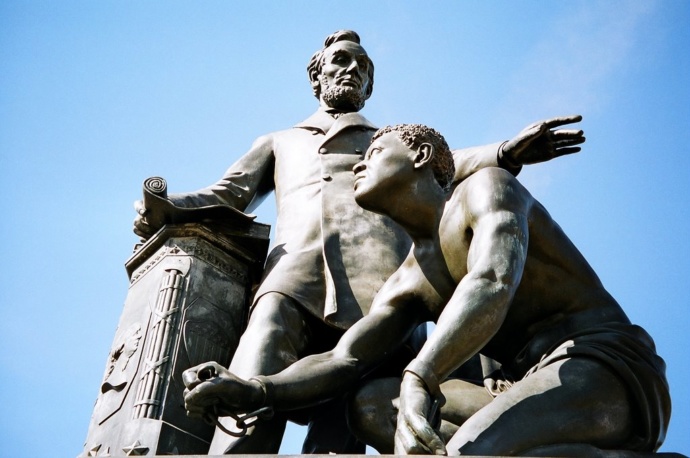
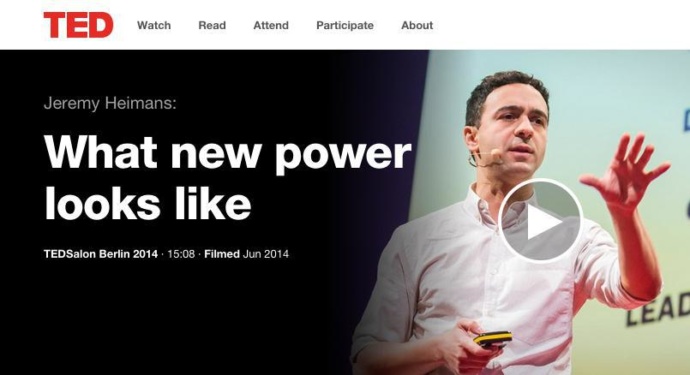

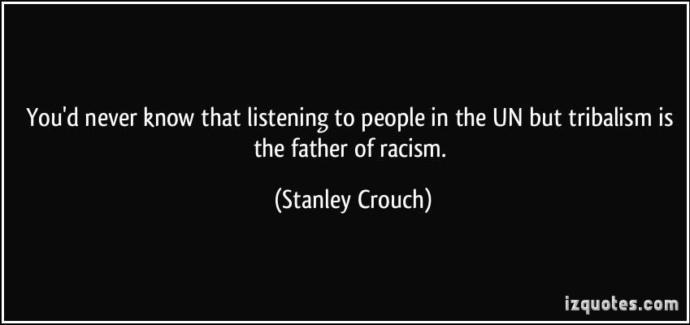
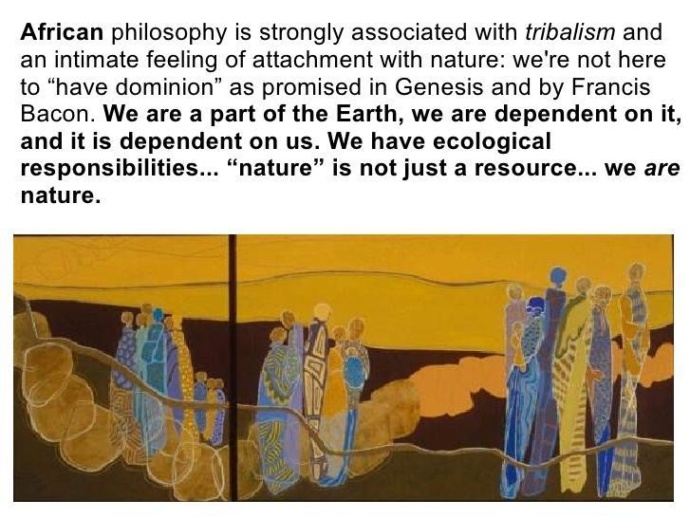
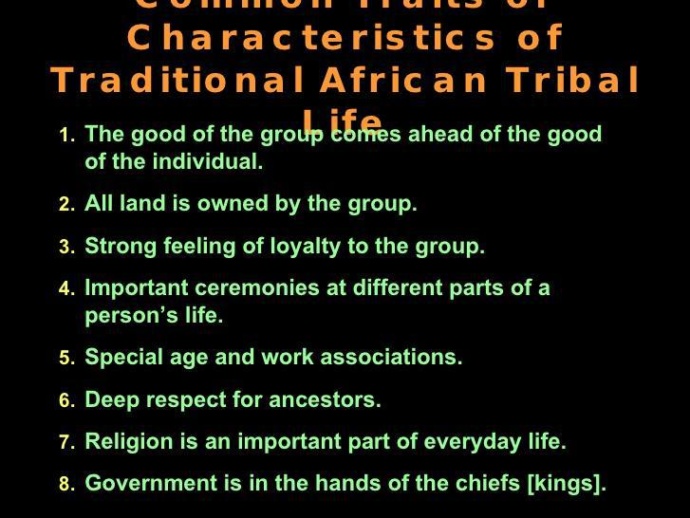
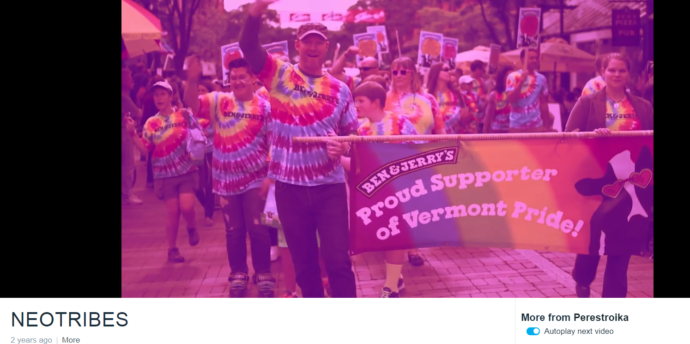
 Become a Patron!
Become a Patron!